Gardener Edmonton
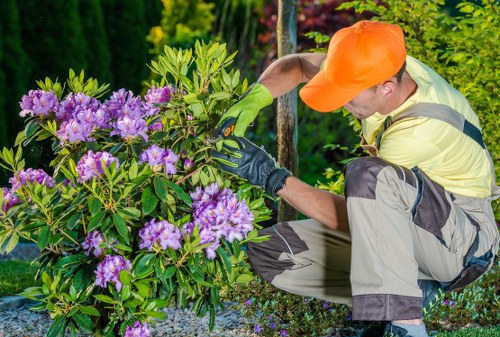
Edmonton, the vibrant capital of Alberta, is home to a thriving community of gardening enthusiasts. Whether you're a seasoned gardener or just starting out, Edmonton offers a unique climate and diverse soil conditions that can both challenge and inspire your green thumb. Understanding the local environment is key to successful gardening in this region.
The city's extensive parks and green spaces provide ample opportunities for gardening projects. From community gardens to private backyard plots, there are numerous avenues to explore your passion for plants. Additionally, the local gardening clubs and events foster a sense of community and offer valuable resources for both novice and experienced gardeners.
One of the primary considerations for gardeners in Edmonton is the climate. Edmonton experiences a continental climate with cold winters and warm summers, which significantly influences planting schedules and plant selection. Choosing plants that can withstand the local weather conditions is essential for a thriving garden.
Understanding Edmonton's Climate for Gardening
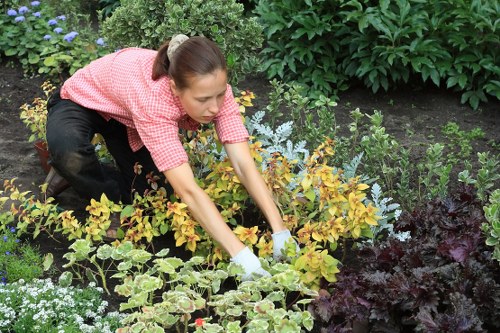
Edmonton's climate is characterized by long, cold winters and short, warm summers. The average growing season lasts from late May to early September, providing a limited window for planting and harvesting. Gardeners must plan accordingly, selecting plants that can thrive within this timeframe.
Frost dates are a crucial aspect to consider. The last frost typically occurs in late May, while the first frost of the fall can arrive as early as September. Utilizing techniques like raised beds and greenhouses can extend the growing season and protect plants from unexpected frosts.
Additionally, Edmonton receives ample sunlight, which is advantageous for photosynthesis. However, excessive sun exposure during the peak summer months can lead to plant stress. Implementing shade solutions and proper irrigation can help maintain optimal growing conditions.
Soil Types and Preparation
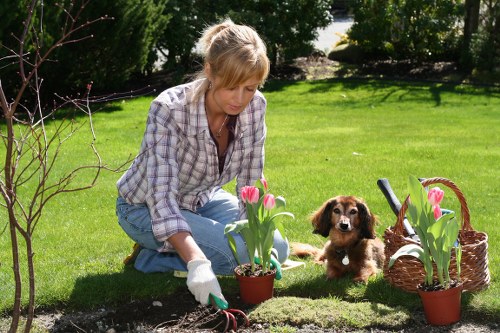
The soil in Edmonton varies, but it is generally classified as sandy or clay-based. Sandy soils drain quickly but may lack essential nutrients, while clay soils retain water but can become compacted. Conducting a soil test is an effective way to determine the specific needs of your garden.
Improving soil quality involves adding organic matter such as compost or well-rotted manure. These amendments enhance soil structure, increase nutrient content, and improve moisture retention. Regularly incorporating organic material ensures a healthy and productive garden.
Proper soil preparation also includes tilling and removing weeds. Tilling helps aerate the soil and breaks up compacted layers, allowing roots to penetrate more easily. Removing weeds reduces competition for nutrients and water, promoting the growth of desirable plants.
Choosing the Right Plants
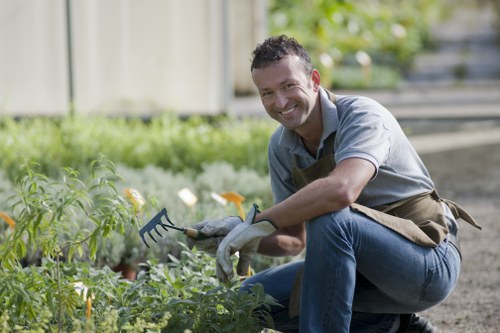
Selecting plants that are well-suited to Edmonton's climate is vital for gardening success. Hardy perennials, such as hostas and daylilies, can withstand the cold winters and return year after year. Annuals like marigolds and petunias provide vibrant color during the growing season.
Vegetable gardening is also popular in Edmonton. Cold-tolerant vegetables like kale, spinach, and peas can thrive in the local conditions. Utilizing techniques like succession planting ensures a continuous harvest throughout the summer months.
Native plants are an excellent choice, as they are adapted to the local environment and require less maintenance. Incorporating native species supports local biodiversity and creates a sustainable garden ecosystem.
Gardening Techniques and Maintenance
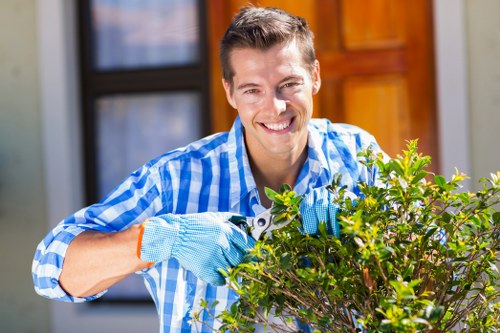
Effective gardening techniques can enhance plant growth and productivity. Crop rotation, for instance, helps prevent soil depletion and reduce the risk of pests and diseases. By rotating plant families each season, gardeners can maintain healthy soil and minimize problems.
Mulching is another important practice. Applying a layer of mulch around plants conserves moisture, suppresses weeds, and regulates soil temperature. Organic mulches, such as straw or bark, also contribute to soil fertility as they decompose.
Regular maintenance, including watering, pruning, and pest control, is essential for a thriving garden. Monitoring plants for signs of stress or disease allows for prompt intervention, ensuring that issues do not escalate and damage the garden.
Community Gardens and Resources in Edmonton

Edmonton boasts a network of community gardens that provide spaces for residents to cultivate their own plants. These gardens offer a sense of community and shared responsibility, fostering relationships among gardeners. Participating in a community garden can also provide access to shared tools and knowledge.
The city offers various resources for gardeners, including nurseries, gardening centers, and extension services. Local nurseries supply a wide range of plants and gardening supplies, while gardening centers often host workshops and seminars on best practices.
Edmonton's horticultural societies and gardening clubs are invaluable for networking and learning. These organizations organize events, plant swaps, and educational sessions, creating opportunities for gardeners to expand their skills and knowledge.
Gardening Challenges in Edmonton
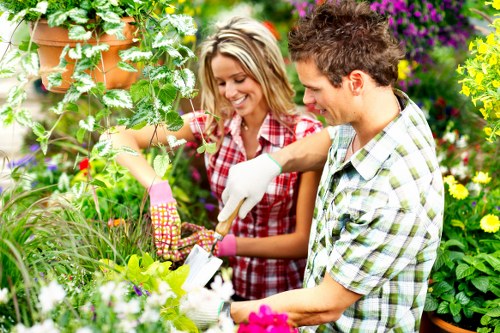
While Edmonton offers many advantages for gardeners, there are also challenges to overcome. The short growing season requires careful planning and efficient use of available time. Selecting fast-growing plants and utilizing techniques like succession planting can help maximize the harvest.
Pests and diseases are another concern. Common garden pests in Edmonton include aphids, snails, and caterpillars. Implementing integrated pest management strategies, such as encouraging natural predators and using organic pesticides, can help control infestations.
Water management is crucial, especially during the dry summer months. Installing drip irrigation systems and collecting rainwater can ensure that plants receive adequate moisture without overwatering.
Innovative Gardening Solutions
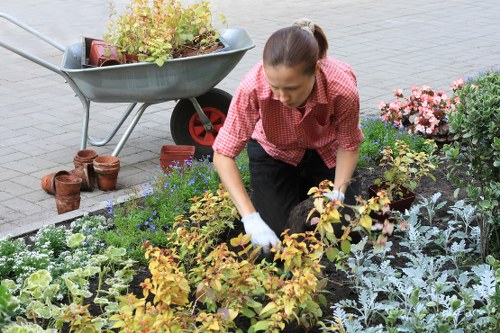
Innovative solutions can enhance gardening efficiency and sustainability in Edmonton. Raised beds improve soil drainage and allow for better control over soil quality. They also make gardening more accessible by reducing the need for bending and kneeling.
Greenhouses provide a protected environment, extending the growing season and enabling the cultivation of plants that might not otherwise thrive in Edmonton's climate. They can also serve as focal points for year-round gardening activities.
Vertical gardening is another creative approach, especially for those with limited space. Using trellises, walls, and other structures, gardeners can maximize their growing area and create visually appealing displays.
Sustainable Gardening Practices
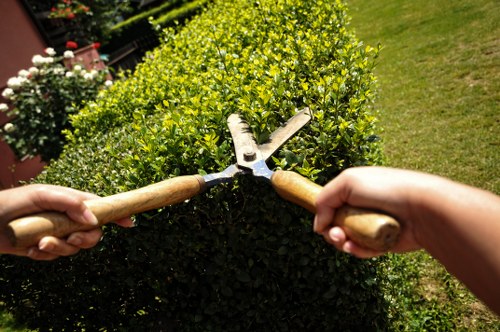
Sustainability is increasingly important in gardening. Implementing practices that reduce waste, conserve resources, and support ecosystem health benefits both the garden and the wider environment. Composting kitchen scraps and garden waste recycles nutrients back into the soil.
Using native plants reduces the need for excessive watering and fertilizers, as these plants are adapted to the local conditions. Additionally, planting a variety of species supports biodiversity and creates a balanced ecosystem.
Rainwater harvesting systems capture and store rainwater for use in the garden, minimizing reliance on municipal water sources. This practice not only conserves water but also reduces utility costs.
Local Events and Workshops
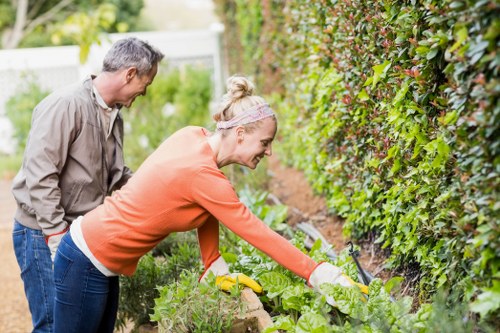
Edmonton hosts numerous events and workshops throughout the year that cater to gardeners of all levels. The annual Edmonton Garden Show showcases the latest trends, products, and techniques in gardening. It's an excellent opportunity to network and gain inspiration for your own garden.
Workshops on topics such as organic gardening, pest control, and landscape design provide valuable hands-on experience. These educational sessions are often led by experts who share their insights and practical tips.
Community gardening events, such as plant exchanges and harvest festivals, celebrate the achievements of local gardeners and promote community engagement. Participating in these events fosters a sense of belonging and encourages the sharing of knowledge.
Gardening Tools and Supplies
Having the right tools is essential for efficient gardening. Basic tools include trowels, pruners, hoes, and watering cans. Investing in high-quality tools can improve your gardening experience and ensure long-term durability.
Specialized tools, such as soil testers and irrigation systems, provide additional support for specific gardening needs. These tools help in maintaining optimal soil conditions and providing consistent water supply to plants.
Local gardening centers in Edmonton offer a wide range of supplies, from seeds and plants to fertilizers and pest control products. These centers are valuable resources for obtaining the materials needed to cultivate a healthy and productive garden.
Edmonton's Top Gardening Spots
Edmonton boasts several top spots for gardening enthusiasts to explore and enjoy. The Hawrelak Park Gardens offer beautifully maintained beds and walking paths, providing inspiration for your own garden projects.
The Royal Alberta Botanical Gardens, located just outside Edmonton, feature extensive plant collections and themed gardens. They serve as a hub for plant research and conservation, offering educational programs for the community.
Rundle Park is another favorite among gardeners, with its diverse plant species and scenic landscapes. It's an ideal location for observing different gardening techniques and plant varieties.
10-15 Nearby Areas to Edmonton for Gardeners
Gardening opportunities extend beyond Edmonton's city limits. Nearby areas offer unique environments and resources for gardening enthusiasts:
- Leduc: Located just southwest of Edmonton, Leduc offers fertile soil and a growing community of gardeners.
- St. Albert: Known for its community gardens and green spaces, St. Albert is a great place for both novice and experienced gardeners.
- Spruce Grove: With its supportive gardening clubs and events, Spruce Grove provides ample resources for gardeners.
- Sherwood Park: This area boasts extensive green spaces and numerous gardening resources, making it ideal for plant enthusiasts.
- Edson: Edson's unique climate and soil conditions offer a different challenge for gardeners looking to diversify their skills.
- Redwater: Known for its community-driven gardening projects, Redwater is perfect for those seeking collaborative gardening experiences.
- Fort Saskatchewan: With a mix of urban and rural gardening opportunities, Fort Saskatchewan caters to a wide range of gardening interests.
- Manning: Manning's agricultural focus provides excellent resources and fertile land for gardening.
- Calgary: Although a larger city, Calgary's proximity to Edmonton allows for shared gardening knowledge and resources.
- Lutsen: A small community with a tight-knit gardening community, Lutsen is ideal for personalized gardening support.
- Wetaskiwin: Wetaskiwin offers a variety of gardening spaces and educational resources for local gardeners.
- Vegreville: Known for its agricultural heritage, Vegreville provides rich soil and a supportive gardening environment.
- Beaumont: Beaumont's growing community includes several community gardens and gardening initiatives.
- Sherwood Park: With its extensive greenbelt, Sherwood Park offers numerous opportunities for both small and large-scale gardening projects.
- Stony Plain: Stony Plain's vibrant community supports a variety of gardening activities and events throughout the year.
Conclusion
Gardening in Edmonton presents both challenges and opportunities. By understanding the local climate, preparing the soil, selecting appropriate plants, and utilizing effective gardening techniques, you can cultivate a thriving garden that brings beauty and satisfaction. Engaging with the local gardening community and exploring nearby areas further enhances your gardening experience, providing endless possibilities for growth and connection.
Whether you're nurturing a small balcony garden or managing a sprawling backyard, Edmonton offers the resources and support needed to succeed. Embrace the unique aspects of gardening in this vibrant city, and watch your garden flourish throughout the seasons.
With dedication, knowledge, and a passion for plants, your Edmonton garden can become a source of pride and joy, enriching both your life and the community around you.
Frequently Asked Questions
1. What are the best plants to grow in Edmonton's climate?
Edmonton's climate is suitable for a variety of plants, including hardy perennials like hostas and daylilies, vegetables such as kale and spinach, and native plants that are adapted to local conditions.
2. How can I extend the growing season in Edmonton?
Using techniques like raised beds, greenhouses, and row covers can help extend the growing season by protecting plants from early frosts and providing a warmer environment for growth.
3. What resources are available for gardeners in Edmonton?
Gardeners in Edmonton can access various resources, including local nurseries, gardening centers, community gardens, horticultural societies, and online forums that offer advice and support.
4. How do I manage pests in my Edmonton garden?
Implementing integrated pest management strategies, such as encouraging natural predators, using organic pesticides, and practicing crop rotation, can effectively manage pests in your garden.
5. Are there community gardening opportunities in areas surrounding Edmonton?
Yes, nearby areas like St. Albert, Spruce Grove, and Redwater offer community gardens and gardening clubs, providing opportunities for collaboration and shared gardening experiences.

